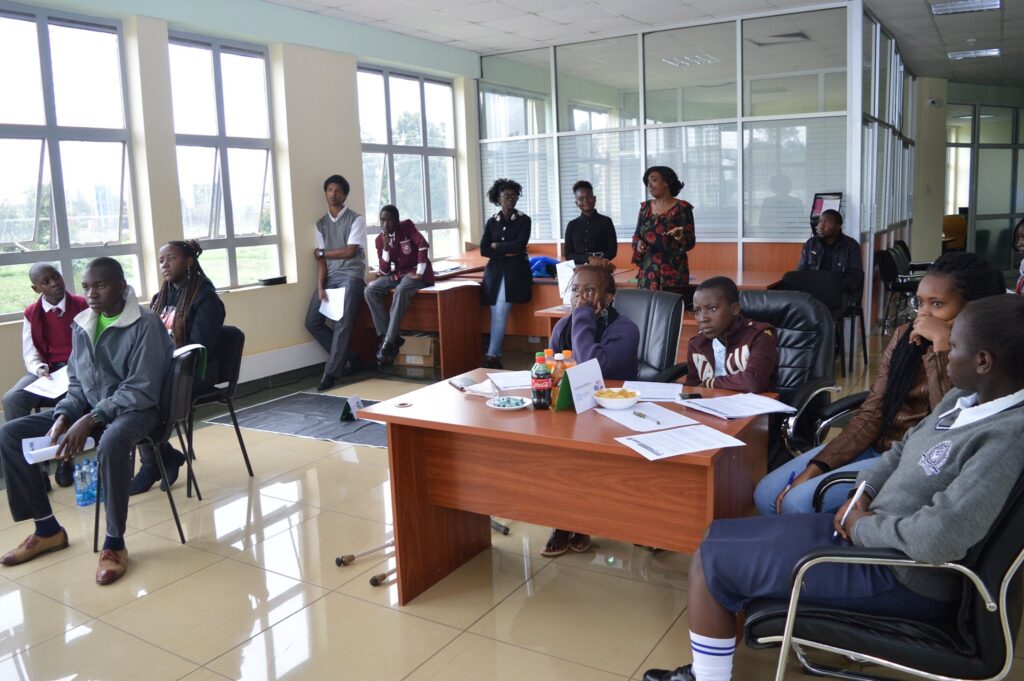
CONCEPT NOTE
INTERNATIONAL TRAINING ON GENDER, CONFLICTS, AND HUMAN RIGHTS
COURSE BACKGROUND
Gender plays a crucial role in shaping the experiences of individuals in conflict situations, influencing vulnerabilities, access to resources, and decision-making power. Women, girls, and marginalized gender groups often bear the brunt of human rights violations during conflicts, including gender-based violence, displacement, and economic disenfranchisement. At the same time, they are also critical agents of peacebuilding, conflict resolution, and human rights advocacy.
This course, offered under the Environmental Capacities and Sustainability (ECAS) Institute, explores the intersection of gender, armed conflicts, and human rights. It examines how international legal frameworks, such as the UN Security Council Resolutions on Women, Peace, and Security (WPS), the Convention on the Elimination of All Forms of Discrimination Against Women (CEDAW), and the Universal Declaration of Human Rights, shape gender-responsive conflict policies and interventions.
Through expert-led discussions, case studies, and interactive sessions, this course equips participants with the knowledge and tools to analyze gender dynamics in conflicts, advocate for human rights, and promote gender-inclusive peacebuilding efforts
COURSE OBJECTIVES OF THE TRAINING
By the end of this course, participants will be able to:
- Understand the link between gender, conflicts, and human rights in different global contexts.
- Analyze the gendered impacts of armed conflicts, including violence, displacement, and economic challenges.
- Examine international legal and policy frameworks that protect the rights of women and marginalized gender groups in conflict settings.
- Explore the role of women and gender-diverse individuals in peacebuilding, conflict resolution, and post-conflict reconstruction.
- Assess gender-based violence in conflicts and mechanisms for justice and accountability.
- Investigate the intersectionality of gender, ethnicity, class, and displacement in conflict situations.
- Develop strategies for gender-responsive conflict resolution and humanitarian interventions.
- Enhance skills in gender-sensitive policy-making, advocacy, and human rights protection.
WHAT YOU WILL LEARN
Participants will gain knowledge and skills in:
- Theoretical and practical understanding of gender in conflict settings.
- Legal instruments protecting human rights and gender equality in conflict zones.
- Gender-based violence, human trafficking, and other human rights violations in conflicts.
- Women’s roles in peacebuilding, mediation, and political participation.
- Humanitarian responses and gender-sensitive approaches in emergencies.
- Intersectional perspectives on gender, race, and social class in armed conflicts.
- Accountability mechanisms for gender-based crimes and transitional justice.
- Case studies on gender-inclusive conflict resolution strategies.
DURATION AND PROGRAM
TARGET PARTICIPANTS
This course is designed for human rights defenders, policymakers, peace and conflict practitioners, gender specialists, humanitarian workers, legal professionals, and civil society leaders engaged in conflict resolution, peacebuilding, and human rights advocacy. It is particularly relevant for professionals working in international organizations, government agencies, non-governmental organizations (NGOs), and research institutions focused on gender justice and conflict transformation.
Additionally, academics, journalists, and students in gender studies, law, political science, and international relations will benefit from a deeper understanding of gender-sensitive approaches to human rights protection and conflict resolution.
TRAINING MODULES
| No | Module | Details | |
| 1. | Understanding Gender and Human Rights |
|
|
| 2. | Gender and Conflict |
|
|
| 3. | Women’s Rights and International Law |
|
|
| 4. | Gender and Climate Change |
|
|
|
5.
|
The Intersection of Gender, Development, and Justice |
|
|
| 6. | Gender, Health, and Well-being |
|
|
| 7. | Gender Advocacy and Social Change |
|
|
| 8. | Future Perspectives on Gender and Human Rights |
|
|
TRAINING STYLE
This course adopts a dynamic and interactive learning approach, incorporating expert-led lectures, real-world case studies, and group discussions. Participants will engage in scenario-based exercises, role-playing simulations, and policy analysis workshops to enhance their skills in gender-sensitive conflict resolution. Guest speakers from the fields of human rights, peacebuilding, and gender advocacy will provide diverse perspectives, while collaborative activities and networking sessions will foster peer learning and knowledge exchange. This participatory approach ensures that participants develop practical strategies to promote gender equality, human rights, and peace in conflict-affected regions.
9. GENERAL NOTES
- Training manuals and additional reference materials are provided to the participants.
- Upon successful completion of this course, participants will be issued with a certificate.
- We can also do this as a tailor-made course to meet organization-wide needs. Contact us to find out more: info@ecasiafrica.org.
- Payment should be sent to our bank account before the start of training and proof of payment sent to: info@ecasiafrica.org.
ABOUT ECAS INSTITUTE
The ECAS Institute designs and delivers independent and targeted training, research, and consulting services. Our work focusses on climate change and resilience building, carbon markets, renewable energy, nature-based solution, biodiversity conservation, agriculture and food systems, We are located in Nairobi Kenya and work across the African region. We have implemented training and research assignments in Kenya, Tanzania, Uganda, South Sudan, Somalia, Malawi, Rwanda, Congo, and South Africa. Globally, we have supported our partners from the UK, Denmark, Italy, Sweden, Germany, and USA.

